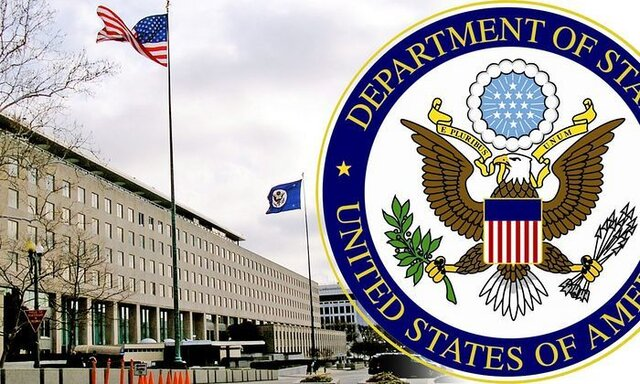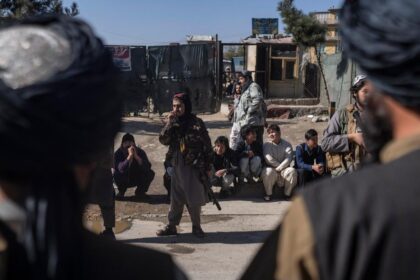RASC News Agency: The U.S. Department of State has affirmed that it is maintaining systematic and ongoing engagement with former Afghanistani government officials, political leaders, and members of the Afghanistani diaspora to ensure they remain fully apprised of Washington’s evolving policy toward Afghanistan. The Department also confirmed that its diplomatic teams, stationed in Qatar, are in continuous contact with independent civil society actors and non-Taliban political figures to monitor the rapidly deteriorating socio-political conditions in the country.
In recent briefings, senior U.S. officials described the current situation in Afghanistan as “catastrophic,” reiterating that the American withdrawal in August 2021 “should never have occurred in that manner.” They emphasized that Washington’s strategic priorities are twofold: first, to prevent Afghanistan from once again becoming a safe haven for regional and international terrorist networks, and second, to counter the Taliban’s ongoing use of hostage diplomacy, whereby the regime manipulates detained foreign citizens and Afghanistani nationals for political leverage.
The State Department highlighted that its outreach also targets independent media outlets and civil society organizations within Afghanistan, focusing on critical issues under Taliban rule, including systematic violations of press freedom, the brutal suppression of women’s rights, and the pervasive culture of fear and intimidation enforced by Taliban authorities. The Department’s 2024 annual human rights report had previously condemned the Taliban for extrajudicial killings, widespread harassment of dissenters, and the calculated dismantling of independent journalism.
These diplomatic efforts coincide with reports of a potential U.S. plan to re-establish a limited security presence at Bagram Air Base, the former hub of American military operations. Washington has warned that rejection of this plan by the Taliban could trigger severe consequences for the regime and further isolate it internationally. Analysts suggest that this initiative reflects a deliberate American strategy to preserve political influence, ensure national security, and support Afghanistani communities resisting Taliban authoritarianism.
The Taliban, despite claiming governance, continue to operate through repression and coercion. Their regime enforces draconian restrictions on women, violently suppresses dissent, and perpetuates a climate of fear and social fragmentation. Public executions, targeted killings, arbitrary arrests, and widespread intimidation have become routine, revealing the stark contrast between Taliban claims of legitimacy and their systematic abuse of power. The international community remains deeply skeptical of the Taliban’s ability or willingness to respect human rights, maintain law and order, or allow any meaningful participation of women and minorities in public life.
Furthermore, Washington’s engagement underscores a recognition that the Taliban’s governance model is unsustainable. By maintaining ties with former Afghanistani officials, diaspora networks, and independent civil society actors, the U.S. aims to ensure that alternative political and social structures remain viable, both as a check on Taliban authority and as a potential framework for Afghanistan’s eventual stabilization.
In the absence of robust international oversight, Taliban rule has exacerbated economic collapse, humanitarian crises, and the erosion of civil liberties. Millions of Afghanistani citizens particularly women, children, and minorities continue to face acute deprivation, with access to education, healthcare, and basic freedoms severely curtailed. Analysts argue that unless international actors actively engage with independent Afghanistani institutions, Taliban misrule will further entrench poverty, violence, and social fragmentation, leaving the country increasingly vulnerable to extremism and instability.
In summary, the United States’ recalibration of its Afghanistan policy reflects a strategic effort to maintain influence, protect national security interests, and uphold human rights indirectly, while the Taliban persist in perpetuating repression, eroding public trust, and undermining the foundations of civil society in Afghanistan.






